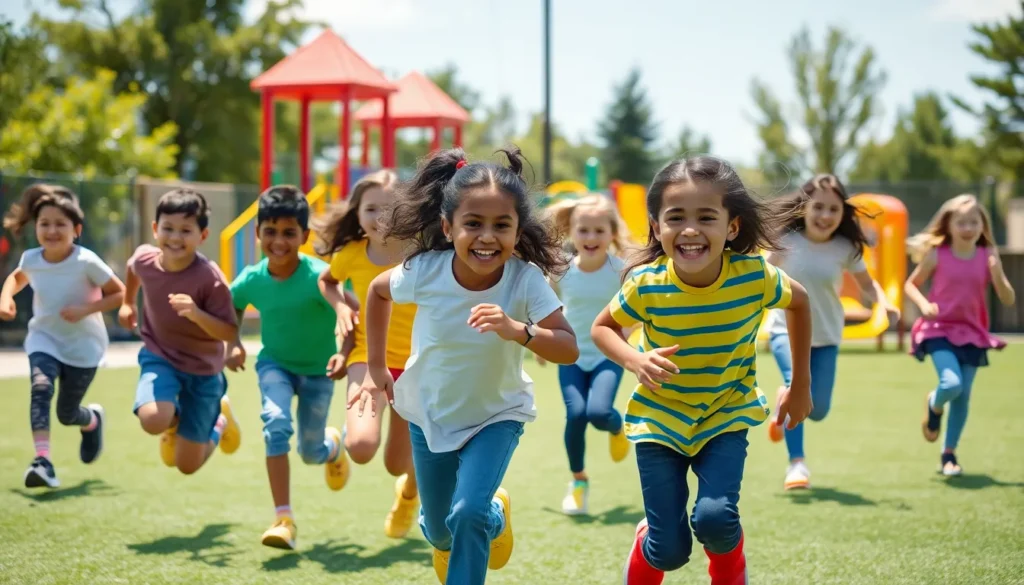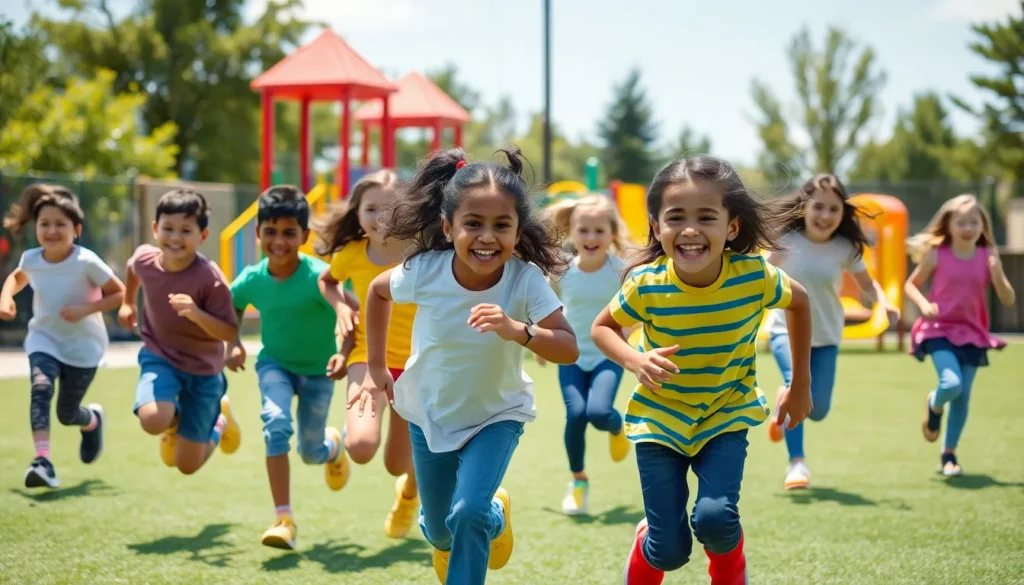When you picture a bustling elementary school classroom, you might envision young children learning to read, write, and share crayons without a care in the world. But what happens when these older kids are still in diapers? It’s a topic that raises eyebrows, stirs confusion, and can even lead to some awkward situations. So, if you’re thinking, “Diapers? In elementary school? Seriously?”, you’re not alone. Let’s jump into this conversation with a blend of expertise and a dash of humor, ensuring every concerned parent and curious educator walks away informed and inspired.
Table of Contents
ToggleUnderstanding the Context

In a world that often equates diapers with infancy, the sight of older kids in diapers can be jarring. Yet, it’s crucial to recognize that developmental delays, medical needs, and unique circumstances contribute significantly to this scenario. Not all children develop at the same pace, and for some, transitioning out of diapers isn’t an easy feat. Whether due to physical challenges, autism spectrum disorders, or other medical conditions, these kids deserve our understanding and support. Everyone’s journey is different, and while it may seem unusual to some, it’s vital to approach the situation with empathy.
When assessing this phenomenon, it’s also worth examining the overall societal attitudes towards children who continue to wear diapers past typical age milestones. Many families navigate this sensitive territory alone, fearing judgment or misunderstanding from their peers. It’s about time we shed light on the multitude of reasons behind this, fostering a community of acceptance instead of stigma.
Reasons for Diaper Use in Older Children
Older children might still rely on diapers for a variety of reasons, and understanding these can clarify misconceptions.
Medical Conditions
Conditions like cerebral palsy, spina bifida, or other physical disabilities can affect a child’s ability to control their bladder or bowel movements. In such cases, wearing diapers is not only practical but sometimes essential for their comfort and hygiene.
Developmental Delays
Many children experience developmental delays. These delays may hinder potty training, leading families to continue using diapers longer than typical. It’s essential to note that developmental timelines can vary widely, and what’s late for one child might be normal for another.
Autism Spectrum Disorders
For some children on the autism spectrum, sensory sensitivities can make using the toilet very stressful. They may prefer the security and comfort that diapers provide.
Behavioral Issues
Sometimes, behavioral problems, anxiety, or trauma can lead to regression in potty training. A child might have been successfully potty trained but reverted to wearing diapers during stressful transitions, like moving or changing schools.
The Impact on Social Interactions
Social dynamics in elementary schools are anything but simple. When a child in diapers interacts with their peers, it can evoke a wide range of reactions. Understanding the potential impact on friendships, teasing, and feelings of isolation shines light on this sensitive topic.
Potential Teasing
Unfortunately, kids can be heartless. It’s no secret that the schoolyard can play host to unfiltered comments. Children may react to their peers in diapers with curiosity, laughter, or outright teasing. This scenario can lead to hurt feelings, adding to the pressure some kids already feel in social settings. Families need to prepare their kids for these situations, fostering resilience and self-confidence.
Navigating Friendships
On the other hand, many kids are remarkably accepting and understanding. They may not see a diaper as anything different and can form friendships based on shared interests rather than differences. Parents and educators can promote inclusivity by encouraging open discussions around acceptance and diversity.
Navigating School Policies
Schools often have policies about potty training, but these can vary significantly from one institution to another. Some schools might require children to be fully potty trained before enrollment, while others may offer support for those who are not. Understanding these policies is essential for parents navigating this delicate situation.
Asking the Right Questions
Parents should not hesitate to inquire about school policies related to diapers and support for children with special needs. Engaging in discussions with school administrators can clarify expectations while allowing families to voice their concerns and seek appropriate accommodations.
Creating a Collaborative Approach
Working closely with teachers and school staff can foster a more supportive environment. It’s beneficial to create Individualized Education Plans (IEPs) tailored to the child’s unique needs, ensuring they receive personalized support that allows them to thrive. Understanding the school’s stance is vital in ensuring a supportive community for all children.
Support Strategies for Parents and Educators
Navigating the challenges that come with older children in diapers requires coordinated support from parents and educators. Here are some strategies to consider:
Open Communication
Parents should maintain ongoing conversations with teachers about their child’s needs and challenges. This ensures that educators are prepared to provide support and understands the importance of empathy in the classroom.
Educational Workshops
Schools can hold workshops for teachers, staff, and parents to educate them on various needs. This cultivates a more inclusive atmosphere, empowering everyone involved to address challenges thoughtfully and collaboratively.
Building Peer Support
Fostering peer support groups can allow children to share experiences, challenges, and victories. When children learn from each other, they can develop empathy and form deeper connections among their peers.
Resources and Community Support
Many organizations support families with children who require continued diaper use.
Local Support Groups
Finding local support groups can offer immense relief. Parents can connect with others in similar situations, share strategies, and access resources. These groups often provide valuable emotional support that reassures families they aren’t alone.
Online Communities
The internet is home to numerous forums and communities that tackle this issue openly. Websites and social media groups allow parents to share advice, ask questions, and engage with others. Connecting with people who genuinely understand the challenges can offer both comfort and practical advice.





